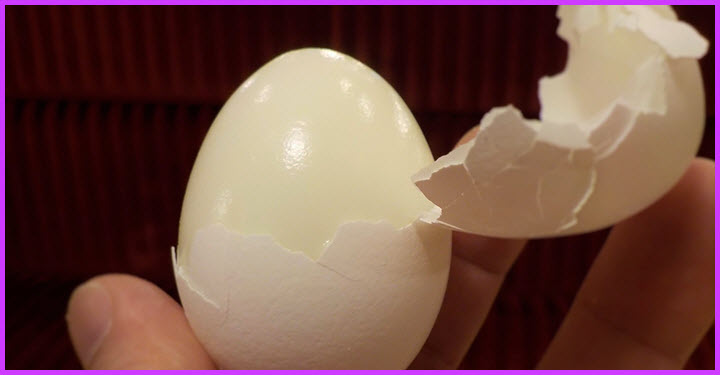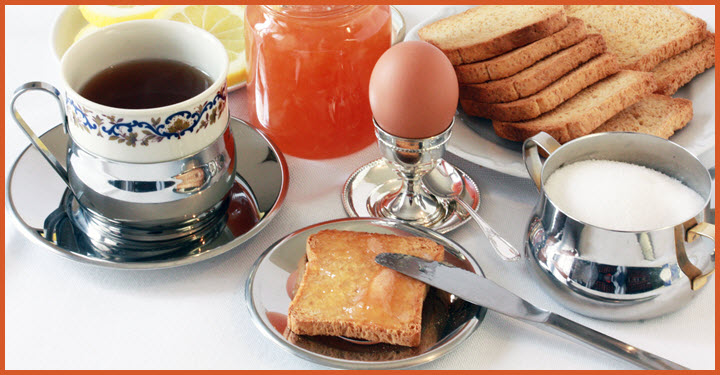Everything And More About Hard Boiled Eggs

How to boil eggs.
For someone learning how to cook, boiling eggs is probably one of the first lesons. It is easy, but gettig the perfect cosistency is a challenge. You have no clues looking at the outside of the shell. Most of us resort to timing the eggs' time in the boiling water. This article will help you make that perfect egg.
The Food Lab recently published an article on how to boil the perfect eggs. Here’s a guide on how to do it:1
1.Lower your eggs into already-boiling water, or place them in a steamer insert in a covered pot steaming at full blast on the stovetop.
2.If boiling, lower the heat to the barest simmer.
3.Cook the eggs for 11 minutes for hard or 6 minutes for soft.
4.Serve. If serving cold, shock them in ice water immediately. Let them chill in the water for at least 15 minutes, or better yet, in the fridge overnight. Peel under cool running water.
That is easy enough, but what if you want that perfect egg.
Tips on How You Can Make the “Perfect” Hard-Boiled Egg
These tips from buying your eggs, cooking your eggs to removing the shells will give you fantastic results.
1.Older Eggs Work Better
Freshly laid eggs are more likely to stick to the shell when you try to peel them, so if you get your eggs direct from a farm (which I highly recommend), you may want to let them age for a couple of weeks before hard boiling them. If you buy your eggs at the supermarket, this is a non-issue since most will sit for 30 days or more before being packaged and consumed.
2.Eggs May Be Straight from the Fridge or Counter
It doesn’t matter if eggs are cold (right from the fridge) or room temperature when you start the cooking process.
3.Boil the Water First (or Use Steam):
A hot start is the most important factor in creating an easy-to-peel hard-boiled egg. This is because egg white cooked slowly (while cold water is heating to a boil, for instance) will bond more strongly with the membrane inside the eggshell. According to the featured article:3
“A hot start produces easier-to-peel eggs. And it doesn’t matter whether that hot start is in boiling water or in a steam-filled pot or pressure-cooker. They’re all strikingly easier to shell than those started in a cold pot.”
4.After a Quick Boil, Turn the Heat Down to a Simmer
In rapidly boiling water, the egg will cook from the outside in, which means the egg white will cook faster, possibly getting rubbery or tough. To get the best of both worlds (tender whites that are still easy to peel), plunge the eggs into boiling water for about 30 seconds, then turn the heat down to a low simmer for the remainder of the cooking (11 minutes total for hard-boiled, six minutes for soft-boiled).
5.Try Steam Cooking
An even more foolproof method may be to steam your eggs. Boil a half-inch of water in a pot, then place your eggs on a steamer insert. This results in eggs that are gently cooked, so there’s no need to turn the heat down as with boiling.
6.Avoid Pressure-Cooking or Baking Your Eggs
Pressure-cooked eggs use higher temperatures than steaming or boiling, which tends to result in tougher, rubbery whites. Baking eggs in an oven has also recently become trendy, but the featured analysis found eggs cooked in an oven were hard to peel, off-colored, and unpredictable.
7.Shock Your Eggs in Ice-Cold Water After Cooking
When your eggs are done cooking, shock them in a pot of ice water. This will lead to a perfectly rounded bottom (getting rid of the “dimple” that’s often found on the bottom of hard-boiled eggs). According to the featured article:4
“When you pull the hot egg out from the pot, the yolk and white have yet to firm up completely… By shocking it, you very rapidly cause the steam that has built up inside that air pocket to convert to water, instantly dropping to about .5% of its original volume. The still-malleable boiled egg moves in to fill its place.
Let the egg cool slowly, on the other hand, and by the time that steam has cooled sufficiently, the egg is already basically set in its shape. Instead of the egg moving in to fill that space, air is drawn in through the egg shell.”
8.Chill Your Eggs Prior to Peeling
The cooler the egg, the firmer its structure will be, making it far easier to remove the peel without causing craters in the white. Ideally, chill the eggs in an ice bath for 15 minutes or in the fridge overnight prior to peeling.
9.Peel Under Running Water
The final step in the perfect hard-boiled egg? Crack the egg gently all over its surface, then peel away the shell under running water.
The source article goes on to talk about how long eggs last, why eggs are so healthy for you and why quality eggs make a difference.

The images came from pixabay.com
